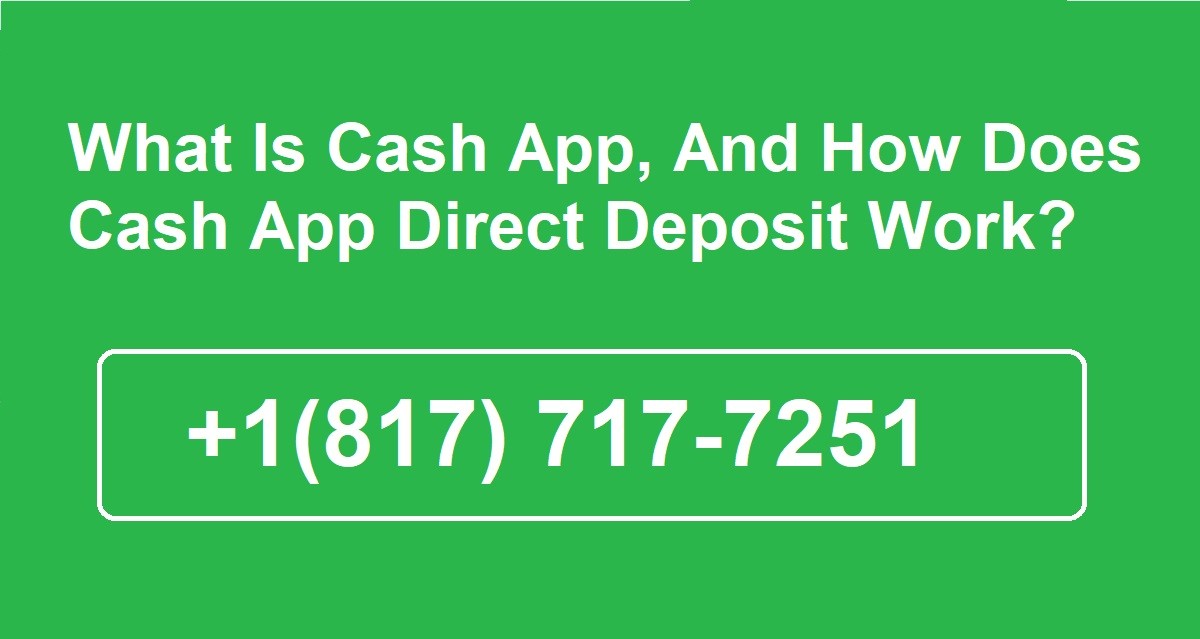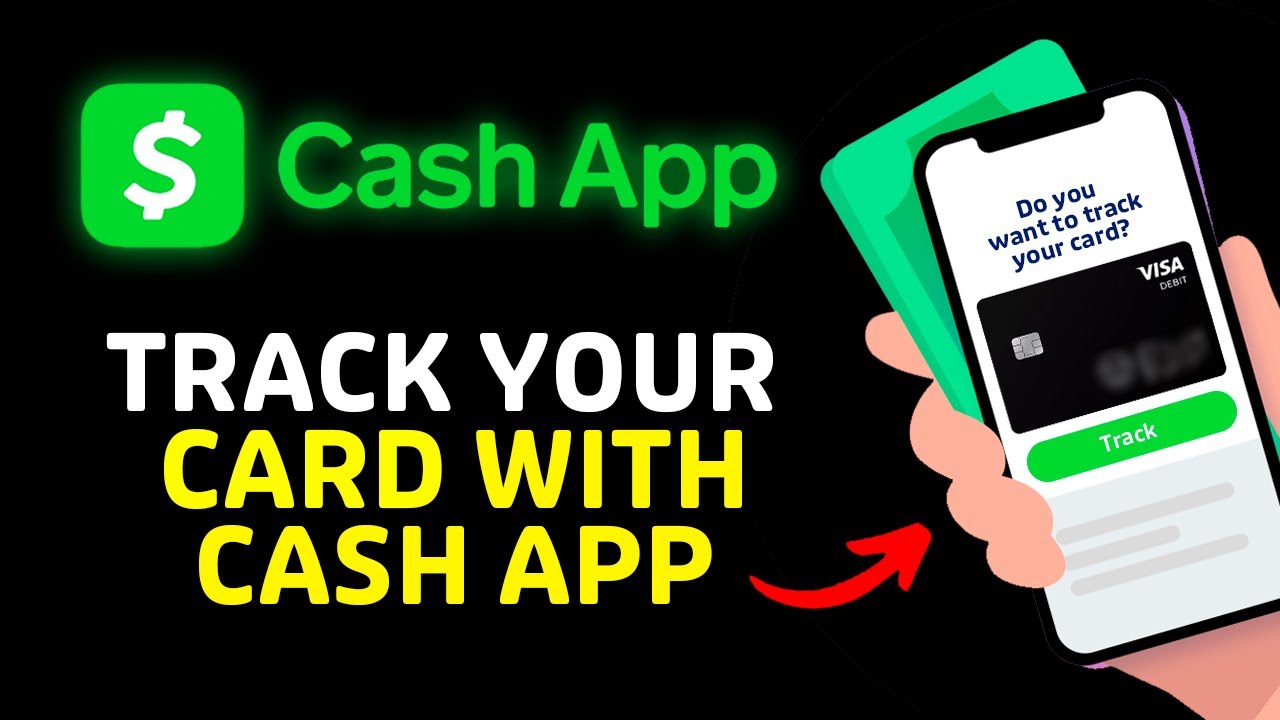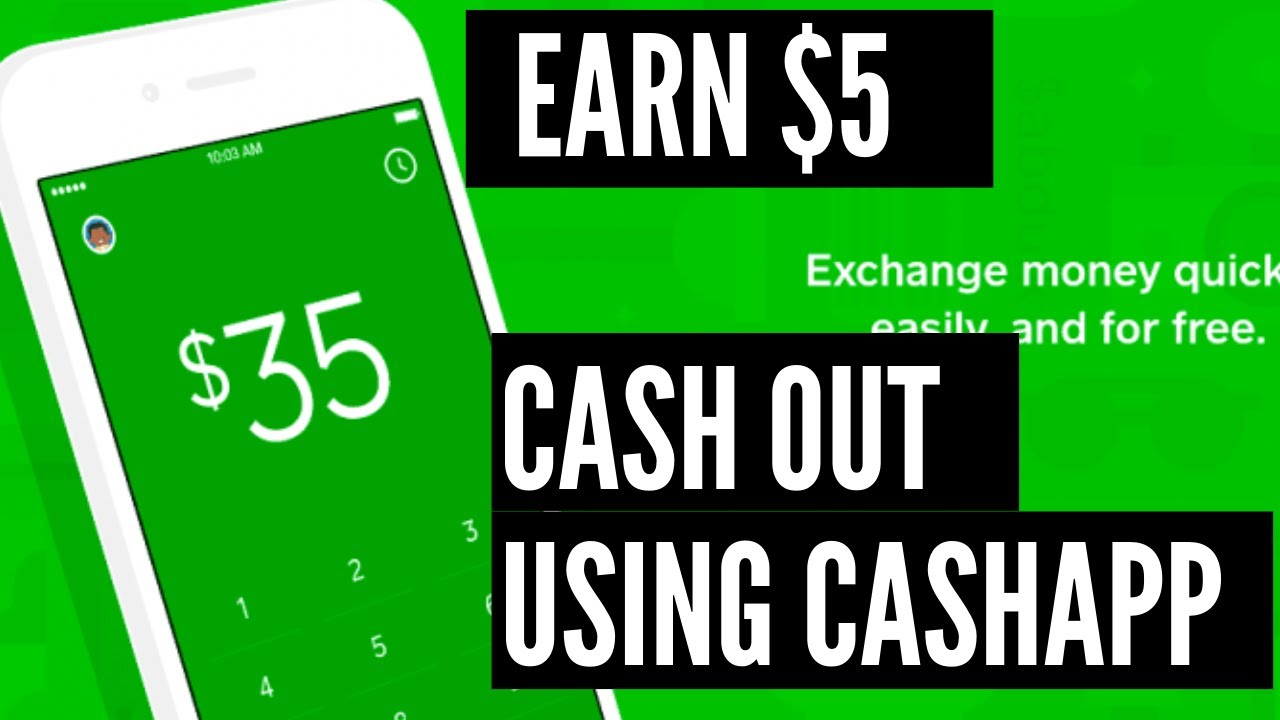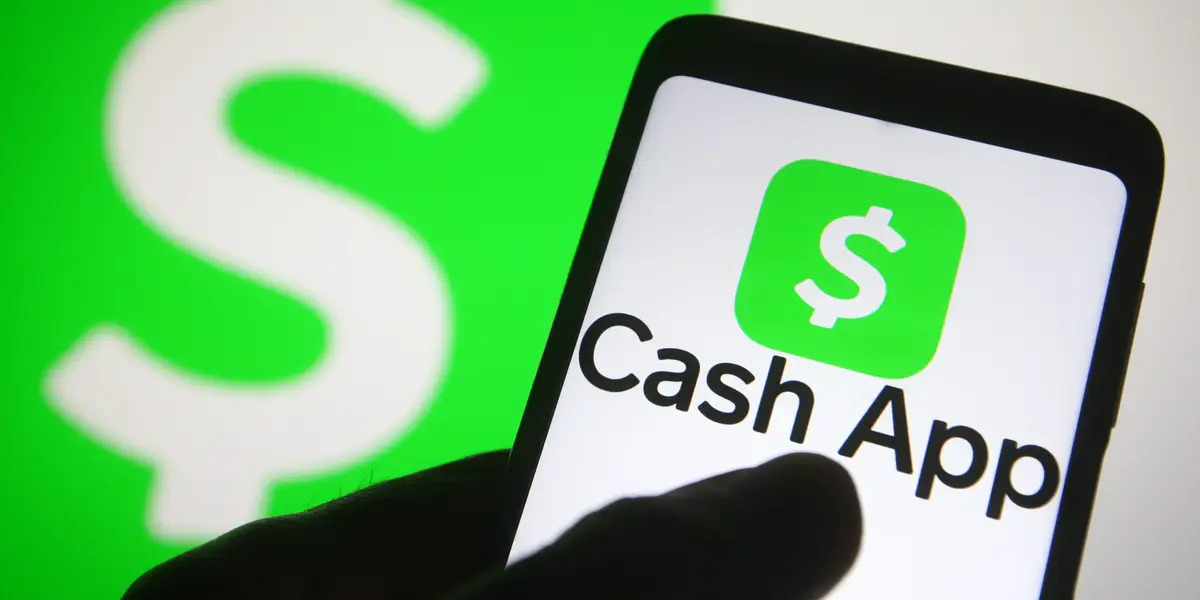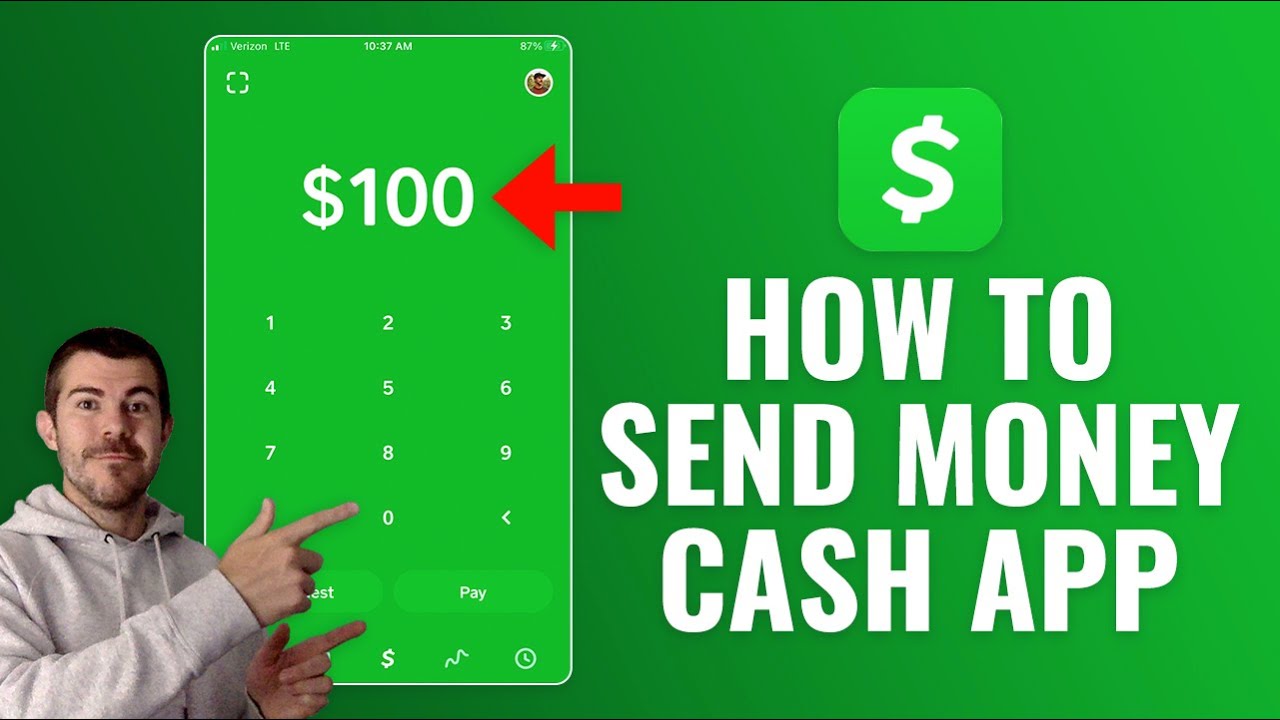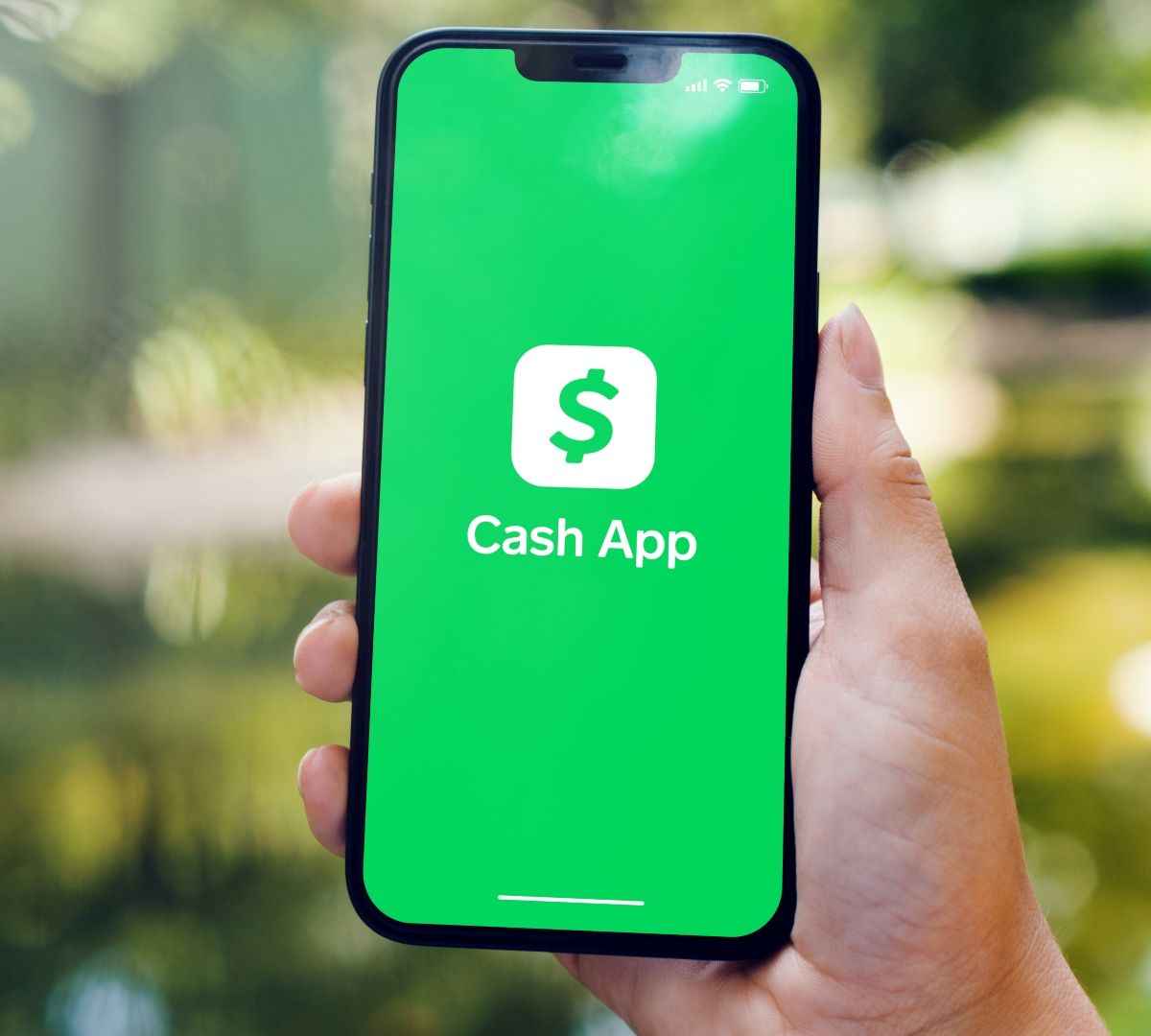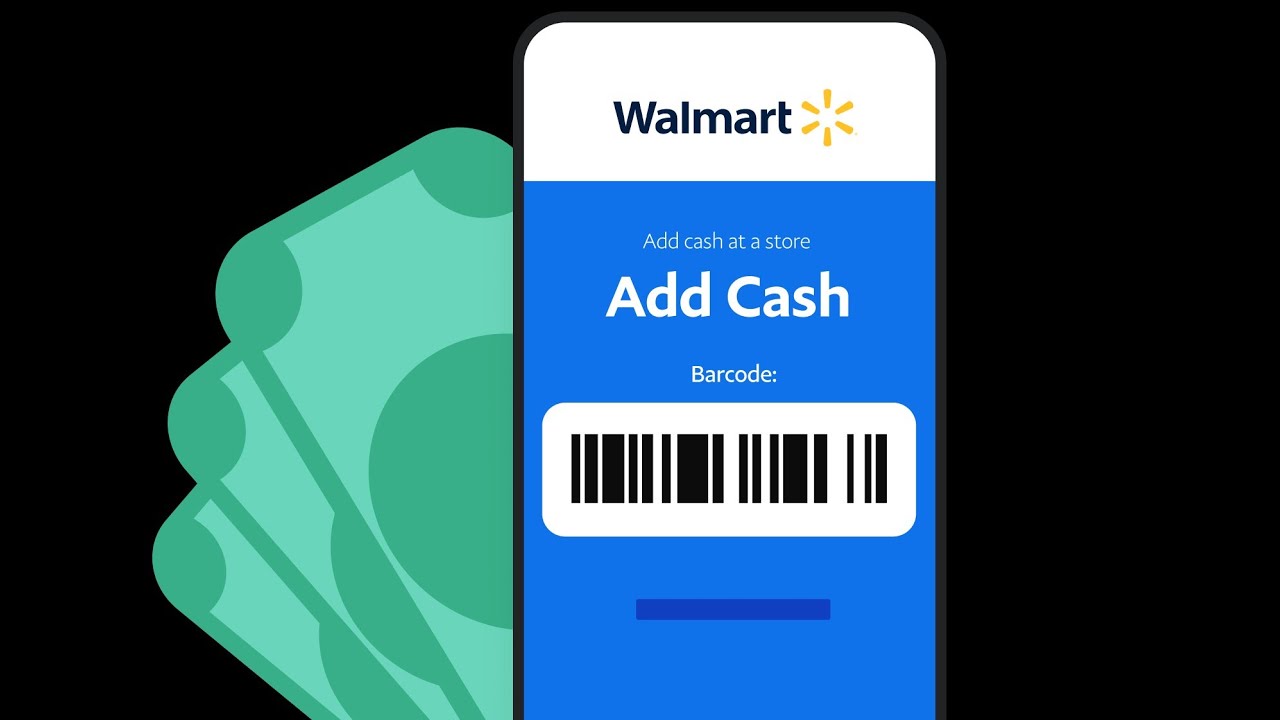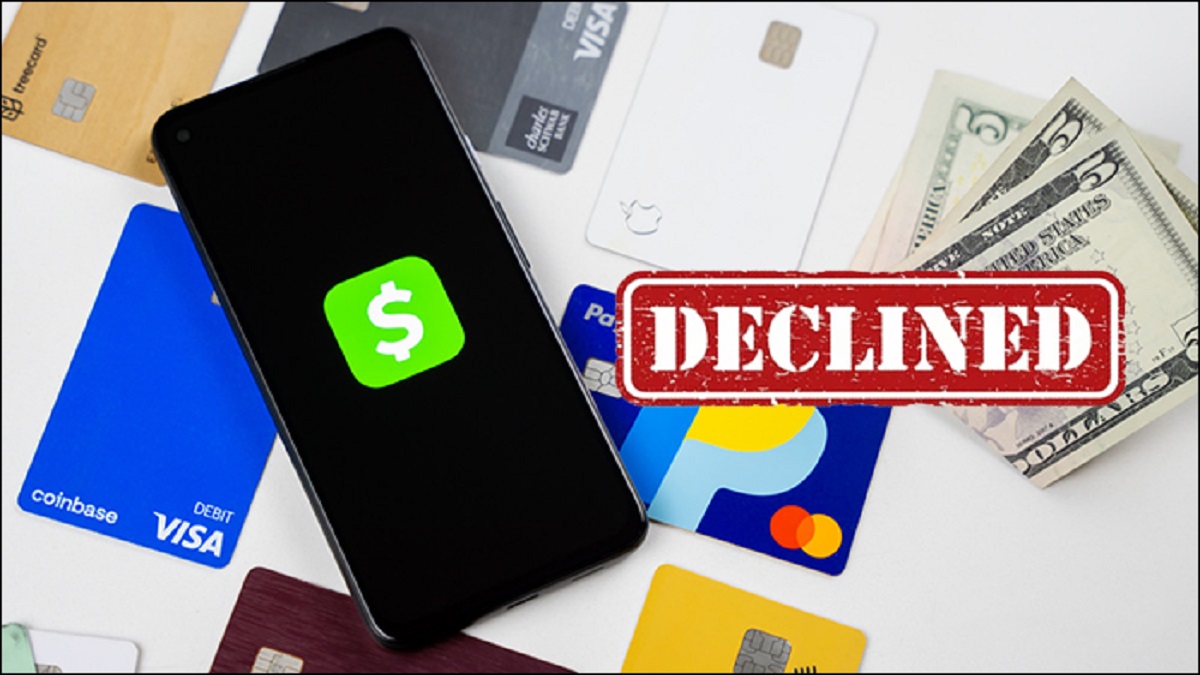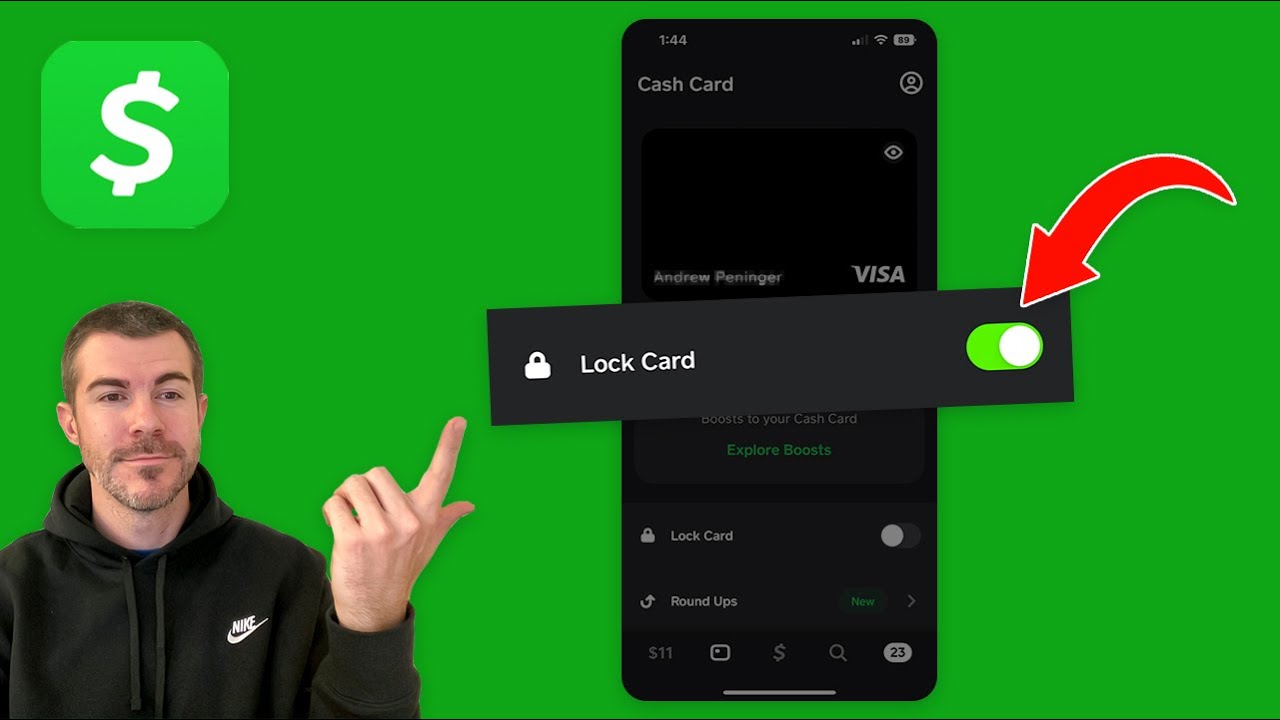Introduction
Cash App is a popular mobile payment service that allows users to send, receive, and manage money effortlessly. It was developed by Square Inc., the same company known for its point-of-sale systems used by small businesses. With Cash App, users can easily handle financial transactions right from their smartphones, making it a convenient and user-friendly service.
With the growing popularity of cashless payments and digital wallets, Cash App has emerged as a reliable and efficient means for individuals to transfer money to friends, family, or even businesses. It offers a wide range of features and functionalities that make it a versatile tool for managing your finances.
Cash App is compatible with both iOS and Android devices, making it accessible to a large audience. Whether you need to split a bill with a friend, pay your share of the rent, or even contribute to a charity, Cash App provides a seamless platform to execute these transactions within seconds.
In this article, we will dive into the various aspects of Cash App, including how it works, how to set up an account, how to send and receive money, and the additional features and benefits it offers. We will also explore the fees and limits associated with using Cash App, as well as the safety and security measures the platform employs to protect its users’ financial information.
So, whether you’re new to Cash App or simply curious about the features it provides, buckle up as we take you on a journey through the world of mobile payments with Cash App.
How Does Cash App Work?
Cash App operates as a peer-to-peer payment service that allows users to send and receive money electronically. The app is free to download and use, making it accessible to anyone with a smartphone or tablet.
One of the key features of Cash App is its ability to link directly to your bank account or debit card. This enables you to easily transfer funds between your Cash App balance and your linked bank account, providing a seamless and convenient way to manage your finances.
When sending money using Cash App, you can either enter the recipient’s mobile phone number, email address, or their unique $cashtag. Alternatively, you can also scan the recipient’s QR code to initiate the payment. Once the recipient receives the funds, they can either keep the money in their Cash App balance or transfer it to their linked bank account.
Additionally, Cash App offers a virtual Visa debit card called the Cash Card. This card is linked to your Cash App balance and can be used to make purchases both online and in physical stores. The Cash Card can also be used to withdraw cash from ATMs.
Another convenient feature of Cash App is the ability to receive direct deposits into your account. This can be useful for receiving salary payments, government benefits, or any other recurring payments. When you set up direct deposit, Cash App provides you with a unique account and routing number that you can provide to your employer or payer.
It’s important to note that while Cash App is a convenient platform for managing your finances, it is not intended for commercial use. It is primarily designed for personal transactions between individuals. If you are a business owner looking for a mobile payment solution, Cash App offers a separate platform called Cash App for Business.
In the next section, we will walk you through the process of setting up your Cash App account so that you can start using this versatile payment service.
Setting Up Your Cash App Account
Getting started with Cash App is quick and easy. Follow these simple steps to set up your account:
- Download the Cash App from either the App Store (for iOS devices) or Google Play Store (for Android devices).
- Open the app and enter your mobile phone number or email address to create an account.
- Create a unique and secure password for your account.
- Once your account is created, Cash App will send you a confirmation code via SMS or email. Enter the code to verify your account.
- After verification, you will have the option to link your bank account or debit card to your Cash App account. This will enable you to add money to your Cash App balance and make transactions.
- You may be required to enter additional personal information, such as your full name, date of birth, and social security number, for identity verification purposes.
- Once your account is set up and linked to your preferred payment method, you’re ready to start using Cash App!
It’s important to note that Cash App requires users to be at least 18 years old to create an account. Additionally, you should ensure that the email address or phone number you provide is accurate, as this will be the primary method of communication for account-related updates and notifications.
Keep in mind that Cash App may occasionally request additional documentation to verify your identity or payments. This is part of their commitment to ensuring the security and integrity of the platform.
Now that you have your Cash App account set up, let’s explore how to send and receive money using this convenient payment service.
Sending and Receiving Money
Sending and receiving money with Cash App is a breeze. Here’s how you can do it:
Sending Money:
- Open the Cash App on your mobile device and log in to your account.
- Tap on the “Cash” button at the bottom center of the screen.
- Enter the amount you want to send.
- Choose the recipient by entering their mobile phone number, email address, or $cashtag. Alternatively, you can scan their QR code if it’s available.
- Add a brief note or description (optional) to accompany the payment.
- Review the details and tap on the “Pay” button to send the money.
Receiving Money:
- When someone sends you money on Cash App, you will receive a notification on your device.
- Open the Cash App and navigate to the “Activity” tab by tapping on the clock icon at the bottom right.
- Find the payment in the activity list and confirm the amount received.
- The money will be instantly available in your Cash App balance. You can choose to keep it there for future transactions or transfer it to your linked bank account.
It’s important to note that there may be limitations on the amount of money you can send or receive on Cash App. These limits may vary depending on the user’s account activity and verification status. Cash App also supports international money transfers; however, additional fees and limitations may apply.
Furthermore, Cash App offers a feature called “Request” that allows you to send a payment request to someone. This is particularly useful for splitting bills or requesting money owed to you. Simply enter the desired amount and the person’s contact information, and they will receive a notification to fulfill your request.
Now that you know how to send and receive money with Cash App, let’s explore the additional features and benefits that this mobile payment service offers.
Cash App Card
The Cash App Card is a virtual Visa debit card that is linked to your Cash App balance. It provides you with a convenient way to make purchases both online and in physical stores, as well as withdraw cash from ATMs.
Once you have set up your Cash App account, you can order a physical Cash App Card that can be used like any other debit card. The card is customizable, allowing you to choose a unique design and even engrave your signature on it.
Here are a few key features and benefits of the Cash App Card:
- Real-time balance updates: When you make a purchase using your Cash App Card, the transaction is reflected in real-time in your Cash App balance.
- Boosts and discounts: Cash App offers a feature called Cash Boost, which allows you to earn instant discounts or boosts on select purchases made with your Cash App Card. These boosts can be applied to various categories such as restaurants, coffee shops, and retailers.
- No fees: Cash App does not charge any fees for using the Cash App Card, including for ATM withdrawals. However, it’s important to check with the ATM provider, as they may charge their own fees.
- Direct deposit: You can have your paycheck, government benefits, or other recurring payments deposited directly to your Cash App Card. This provides added convenience and helps you access your funds faster.
- Security features: Cash App employs various security measures to protect your card, including the ability to lock and unlock it instantly from your Cash App account.
It’s worth noting that the Cash App Card is separate from your linked bank account or debit card. The funds on your Cash App Card are deducted from your Cash App balance, and you can manage your card settings separately from your primary account.
Whether you’re making online purchases or need to access cash for daily expenses, the Cash App Card provides a flexible and convenient solution. Now that we’ve covered the Cash App Card, let’s explore the rewards and cash boosts available on Cash App.
Cash App Rewards and Cash Boost
Cash App offers a range of rewards and cash boosts to enhance your spending experience and help you save money. These features provide users with the opportunity to earn discounts and enjoy additional perks when making purchases with their Cash App Card.
Cash Boost:
Cash Boost is a unique feature of Cash App that allows users to earn instant discounts on select purchases made with their Cash App Card. With Cash Boost, you can enjoy savings on various categories, such as coffee shops, restaurants, retailers, and more.
To activate a Cash Boost, simply select your preferred boost from the available options in the Cash App Boost section. Once activated, the discount will automatically apply when you make a qualifying purchase with your Cash App Card.
Cash App Rewards:
Cash App also offers a rewards program that allows you to earn cash back on eligible purchases. With Cash App Rewards, you can earn a percentage of your purchase amount back as cash. The rewards are typically deposited directly into your Cash App balance, making it easy to use for future transactions.
The Cash App Rewards program includes a variety of offers from participating merchants, allowing you to earn cash back on everyday purchases, dining, entertainment, and more. Keep an eye out for eligible merchants and offers within the Cash App to take advantage of these rewards.
Both Cash Boosts and Cash App Rewards provide users with the opportunity to save money and get additional value from their everyday spending. It’s important to regularly check for new boosts and rewards within the Cash App to take advantage of the latest offers.
Now that we’ve explored the rewards and cash boosts available through Cash App, let’s delve into the fees and limits associated with using this mobile payment service.
Cash App Fees and Limits
Using Cash App is generally free, but there are certain fees and limits to be aware of. Here’s an overview of the fees and limits associated with Cash App:
Transaction Fees:
Most standard transactions on Cash App are free, which means you can send and receive money without incurring any fees. However, there are a few exceptions:
- Instant deposits: If you choose to have funds deposited instantly to your linked bank account, Cash App may charge a fee of 1.5% of the total transaction amount.
- ATM withdrawals: While Cash App itself does not charge any fees for ATM withdrawals, some ATM owners may impose their own fees, which are displayed before you complete the transaction.
Transfer Limits:
Cash App imposes certain limits on the amount of money you can send and receive within a specified time frame.
- Unverified accounts: If your Cash App account is unverified, you can send up to $250 in a 7-day period. You can receive an unlimited amount of money.
- Verified accounts: Once you verify your account by providing additional personal information, you can send up to $7,500 per week and receive an unlimited amount of money.
International Transactions:
Cash App supports international money transfers, allowing you to send money to and receive money from individuals outside of your country. However, additional fees may apply for international transactions, including currency conversion fees.
It’s important to review and understand the fees and limits associated with Cash App to avoid any surprises. You can find more detailed information on the Cash App website or within the app itself.
With the knowledge of fees and limits in mind, let’s now focus on the safety and security measures that Cash App employs to protect its users.
Safety and Security on Cash App
Cash App places a strong emphasis on the safety and security of its users’ financial information. Here are some of the measures in place to protect your transactions:
Identity Verification:
To ensure the security of your account, Cash App requires users to verify their identity. This process may involve providing personal information, such as your full name, date of birth, and social security number. By verifying your identity, Cash App helps prevent fraudulent activities and unauthorized access to your account.
Encryption and Data Protection:
Cash App utilizes industry-standard encryption to protect your sensitive data. When you enter your personal and financial information on the app, it is encrypted and securely transmitted to Cash App’s servers. This helps safeguard your information from unauthorized access or cyberattacks.
Two-Factor Authentication:
For an added layer of security, Cash App offers the option to enable two-factor authentication (2FA). With 2FA, you will be required to enter a unique verification code in addition to your password when logging into your account. This helps prevent unauthorized access even if someone knows your login credentials.
Fraud Monitoring:
Cash App has sophisticated systems in place to monitor and detect fraudulent activities. If any suspicious transactions are detected on your account, Cash App’s fraud detection algorithms will automatically flag them and take appropriate measures to protect your funds.
Dispute Resolution:
If you encounter any unauthorized charges or suspicious activity on your Cash App account, you can report it to Cash App’s customer support. They have a dedicated team available to assist you with resolving any issues and ensuring the security of your funds.
While Cash App takes significant measures to protect its users, it’s important to practice good security habits on your end as well. This includes regularly updating your app, using strong and unique passwords, and being cautious of phishing attempts or suspicious links.
Now that we’ve covered the safety and security measures on Cash App, let’s explore the customer support options available to users.
Cash App Customer Support
Cash App offers customer support to assist users with any questions, issues, or concerns they may have. Here are the various ways you can reach out to Cash App’s customer support:
In-App Help Center:
Within the Cash App, you can access the Help Center, which provides answers to frequently asked questions and troubleshooting guides. The Help Center covers a wide range of topics, from account management to transaction-related queries.
Contact Support via Email:
If you cannot find a solution to your issue in the Help Center, you can contact Cash App’s customer support via email. From the Cash App, navigate to the profile icon and scroll down to find the “Cash Support” option. From there, you can send an email detailing your question or problem.
Twitter Support:
Cash App also offers customer support through its official Twitter account. You can reach out to them by sending a direct message or tweeting at their handle. Social media support can be a quick and effective way to receive assistance.
When contacting Cash App’s customer support, make sure to provide as much relevant information as possible to help them understand and address your issue efficiently. This includes your name, account details, and a clear description of the problem you’re experiencing.
It’s important to note that Cash App does not provide customer support over the phone. Be cautious of scams or fraudulent individuals posing as Cash App support agents and requesting your personal or account information.
If you have any concerns regarding the security of your account or unauthorized transactions, it is crucial to report them to Cash App’s customer support immediately. They have a dedicated team to investigate and assist in resolving such matters.
Now that we’ve covered the customer support options available on Cash App, let’s weigh the pros and cons of using this mobile payment service.
Pros and Cons of Using Cash App
Like any financial service, Cash App has its advantages and disadvantages. Let’s take a look at the pros and cons of using Cash App:
Pros:
- Convenience: Cash App offers a user-friendly platform that allows you to send and receive money right from your smartphone, eliminating the need for physical cash or checks.
- Quick transfers: With Cash App, money transfers are usually instant, enabling seamless transactions between friends, family, or businesses.
- Cash Card: The Cash App Card provides a convenient way to make purchases online and in-store, and even withdraw cash from ATMs.
- Rewards and boosts: Cash App offers cash back rewards and boosts on select purchases, allowing you to save money and make your spending more rewarding.
- Security features: Cash App prioritizes the safety and security of its users, implementing measures such as two-factor authentication, identity verification, and encryption to protect your financial information.
- Customer support: Cash App offers various support channels, including an in-app help center, email support, and assistance via social media platforms like Twitter.
Cons:
- Fees on instant deposits: While most transactions on Cash App are free, there is a fee for instant deposits to your linked bank account.
- Limits on transactions: Cash App imposes limits on the amount of money you can send and receive within specific time periods, which may not suit high-volume users.
- International transaction fees: International transactions may incur additional fees, including currency conversion fees, which can impact the cost of sending or receiving money across borders.
- Limited customer support options: Cash App’s customer support primarily relies on its in-app help center and email support, as phone support is not available. This may be a drawback for users who prefer immediate assistance over the phone.
Considering these pros and cons, it’s essential to evaluate your own needs and preferences to determine if Cash App is the right mobile payment service for you.
Now that we’ve explored the pros and cons, let’s wrap up our guide to Cash App.
Conclusion
Cash App is a versatile mobile payment service that offers convenience, ease of use, and a range of features to manage your financial transactions. With its user-friendly interface, quick transfers, and the added benefits of the Cash App Card, rewards, and boosts, Cash App provides a seamless way to send and receive money.
Setting up a Cash App account is simple, and once you’re verified, you can enjoy the benefits of a secure and efficient payment platform. Cash App prioritizes the safety and security of its users, employing encryption, identity verification, and two-factor authentication to protect your financial information.
While Cash App offers many advantages, it’s important to be aware of the fees associated with instant deposits and international transactions. Additionally, customer support options are primarily limited to the in-app help center and email support.
Considering the pros and cons, Cash App can be an excellent choice for individuals seeking a convenient and flexible way to handle their financial transactions. Whether you’re splitting a bill with friends, paying rent, or shopping online, Cash App provides a seamless and efficient platform to manage your money.
So, if you’re ready to embrace the world of mobile payments and enjoy the advantages of digital wallets, give Cash App a try. Download the app, set up your account, and experience the convenience and simplicity that Cash App offers.







